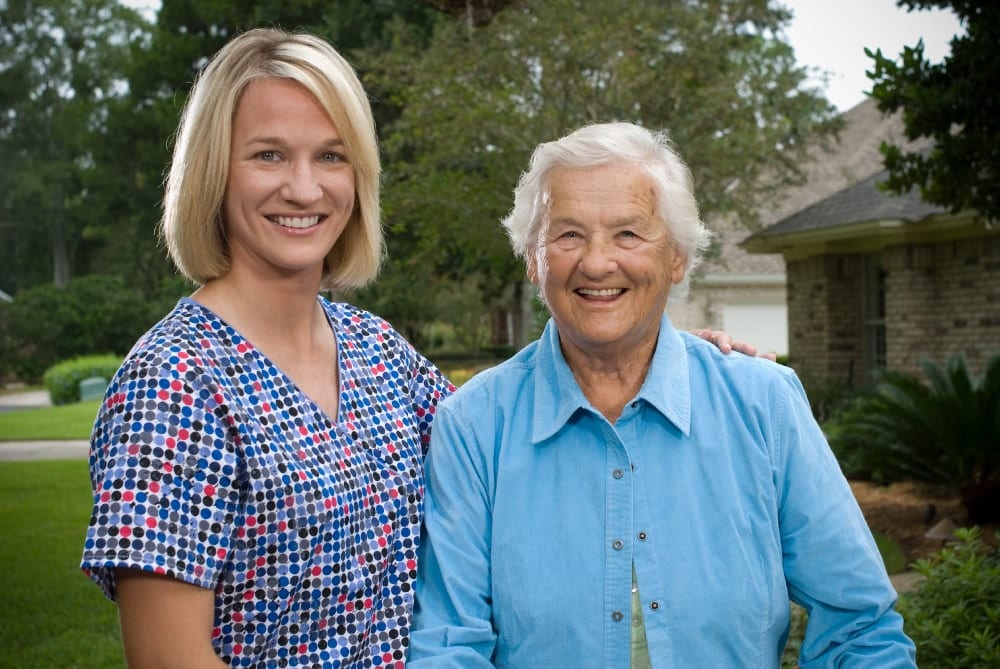Welcome to Fairfield Family Care
Offering the highest quality in-home care, Fairfield Family Care ensures that you or your loved one is provided with the support and assistance they need while maintaining the comfort and independence they deserve.
Fairfield Family Care, located in Stamford, CT specializes in home care for seniors, those with disabilities, and others needing a little extra help and support. Throughout, we provide in-home care services, ranging from grooming, meal preparation and errands to light housekeeping and companionship. We also have caregivers specifically experienced with elder care and Fall Prevention. We customize each home care package to fit your specific needs in order to provide the highest quality care at home.

FREE In-home Needs Assessment
Most elderly parents want to live in their own home but daily activities can be challenging. It is our goal to assist with solutions to improve the ease and safety of the environment. Fairfield Family Care can evaluate the home and help make changes to add assurance and convenience for your loved one immediately or in anticipation of the future…

Info About
Medical Alert
In many emergencies, victims are not within reach of a phone. Fairfield Family Care’s Medical Alert System offers Peace of Mind.

FREE Checkup
Service
CHECK-UP™ is a daily, free “safety check” phone call to anyone. You don’t need a doctor’s referral or be one our clients!
Contact Us to learn about our special offer for first time care services clients!
In-Home Care Services
Our elderly home care services are individualized in order to satisfy your needs. We assist with many day-to-day activities.
-

ELDER CARE
Companionship
Grooming
Dressing
Oral Hygiene
Toileting
Incontinence Care
Transferring and Positioning -

SAFETY & TRAVEL
Accompany on Walks
Safety / Fall Protection
Transportation
Accompany to Doctor Appointments
Picking up Prescriptions
Post Office Visits
Errands
Grocery Shopping -

AROUND THE HOUSE
Meal Preparation & Eating
Medication Reminders
Light Housekeeping
Laundry
Bed Making
Taking out the Trash -

OTHER ACTIVITIES
Pet Care and Feeding
Recreational Activities
Organizing Incoming Mail
Hobbies Respite / Relief for Families
Have you had difficulty finding an excellent caregiver? Fairfield Family Care carefully matches each senior home care professional with you or your loved one. Our caregivers are pre-screened to ensure that your service is of the highest quality. Typically we can have a qualified caregiver placed in your home within 24 hours or less from the time of the initial call. In an emergency, a caregiver can be at your home within one hour of the call!
More About Fairfield Family Care
Elder home care services allow you or your loved one to live comfortably at home with the assistance of a certified caregiver. Here at Fairfield Family Care, we are dedicated to providing high-quality care that you can trust, no matter what your needs are. We offer many different options that can be customized to your unique requirements, from full-time home nursing services to part-time hourly assistance or anything in between.
We understand that every client’s needs are different. That’s why we offer complimentary needs assessments to determine what level of in-home senior services you or your loved one will require. We will have one of our specialized caregivers visit you at your home or the home of a loved one to create a custom care plan. Whether your needs are large or small, Fairfield Family Care is here to help.
Fairfield Family Care, located in Stamford, CT specializes in home care for seniors, those with disabilities, and others needing a little extra help and support throughout Fairfield, Westchester and New Haven Counties.
Fairfield Family Care can help provide you or a loved one with high-quality support at home. Our Connecticut caregivers are highly trained and have the experience necessary to provide exceptional elderly home care. All staff members must pass several background checks, as well as an extensive training program, including C.P.R training, First Aid training, and more. Additionally, each of our professionals is bonded and insured to provide you with an added layer of protection.
When you choose Fairfield Family Care, you can trust that you are receiving the best in-home care possible. We hire only the most exceptional care personnel to ensure that the caregiver in your home is experienced, trustworthy, dependable, and compassionate. At Fairfield Family Care, we know that each client’s needs are unique. That’s why we offer a free in-home consultation to determine what level of care you require. We can match you with a trusted caregiver who can provide the support you need. Contact us today to schedule your free in-home consultation or for more information about our caregivers.
Contact Us
Please fill out the form or call 203-295-3477 for a no obligation consultation.


